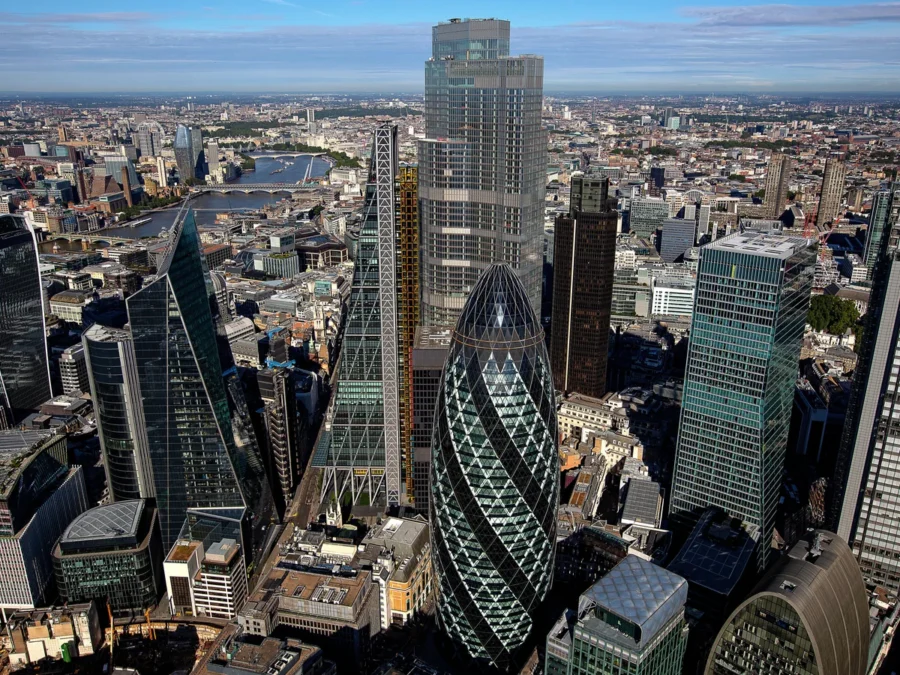London, the economic heart of the United Kingdom, has long been a global powerhouse in finance, trade, and innovation. As one of the world’s most influential cities, its economy plays a crucial role in both national and international markets. From the towering financial institutions of Canary Wharf to the thriving startup ecosystem in Shoreditch, London continues to evolve amid shifting global trends. This article explores the London economic landscape, its key industries, challenges, and the opportunities that shape its future.
The Backbone of London’s Economy
London’s economy is one of the most diverse and dynamic in the world. With a Gross Domestic Product (GDP) of over £500 billion, the city contributes significantly to the UK’s overall economic performance. Several key industries define the London economic structure:
1. Finance and Banking: The Powerhouse of London’s Economy
London is home to one of the largest financial hubs in the world, the City of London. The London Stock Exchange (LSE), the Bank of England, and global financial giants such as HSBC, Barclays, and Lloyds are based in the capital. The financial sector alone contributes billions to the UK economy, providing employment to hundreds of thousands of professionals.
Despite challenges such as Brexit and increasing competition from European financial centers like Frankfurt and Paris, London remains a leading financial hub. The city’s regulatory environment, access to international markets, and reputation for financial expertise ensure its continued dominance.
2. Technology and Innovation: A Booming Industry
In recent years, London has emerged as a major tech hub, rivaling Silicon Valley in terms of innovation and investment. The area known as “Silicon Roundabout” in Shoreditch is home to a thriving startup ecosystem. Companies specializing in fintech, artificial intelligence (AI), and cybersecurity are driving the next wave of technological advancements in the London economic landscape.
London attracts billions in venture capital funding, supporting startups such as Revolut, Monzo, and Wise in reshaping financial services. Moreover, the government’s focus on digital transformation, AI, and sustainability is expected to further boost the sector’s growth.
3. Tourism and Hospitality: A Vital Contributor
Tourism is a key pillar of the London economic structure, with millions of visitors flocking to the city every year. Iconic landmarks such as Buckingham Palace, the Tower of London, and the British Museum attract tourists from around the world. The hospitality sector, including hotels, restaurants, and entertainment venues, generates billions in revenue annually.
However, the COVID-19 pandemic dealt a significant blow to tourism, forcing many businesses to close temporarily or permanently. While the sector has shown resilience, challenges such as rising operational costs and changing travel patterns continue to shape its recovery.
4. Real Estate and Infrastructure: A Market in Transition
London’s real estate sector is one of the most valuable in the world. The city’s skyline is constantly evolving, with new skyscrapers and developments transforming areas like Battersea and King’s Cross. However, rising property prices, housing shortages, and regulatory changes have created a challenging environment for investors and homebuyers.
Commercial real estate has also seen shifts, particularly with the rise of remote working. Many businesses are rethinking office spaces, leading to increased demand for flexible workspaces and co-working environments. The future of London’s real estate market will depend on how well it adapts to these new trends.
5. Retail and Consumer Spending: A Changing Landscape
The retail sector is another significant component of the London economic framework. Areas such as Oxford Street, Bond Street, and Covent Garden have long been prime shopping destinations. However, the rise of e-commerce, changing consumer behavior, and economic uncertainties have impacted traditional retail.
High street retailers have had to adapt by integrating digital strategies, offering omnichannel experiences, and focusing on personalized services. While some businesses have struggled, others have embraced innovation to remain competitive in the evolving retail market.

Challenges Facing the London Economy
While London remains a global economic leader, it faces several challenges that could impact its growth:
1. Brexit and Its Economic Implications
The UK’s departure from the European Union has created uncertainties for businesses, especially in finance, trade, and recruitment. London has had to navigate regulatory changes, shifting supply chains, and the loss of certain trade benefits. Despite these challenges, the city has shown resilience, adapting to new economic realities.
2. Cost of Living and Affordability Crisis
London is one of the most expensive cities in the world. The high cost of housing, transportation, and daily expenses makes it difficult for many residents to afford a comfortable lifestyle. Rising inflation and wage stagnation have further exacerbated affordability concerns. Addressing these issues will be crucial in ensuring long-term economic stability.
3. Post-Pandemic Recovery and Workforce Changes
The COVID-19 pandemic significantly altered the way businesses operate. Remote work, hybrid models, and changes in workforce expectations have reshaped industries. London must continue adapting to these new work trends while ensuring job opportunities remain abundant.
4. Environmental and Sustainability Challenges
Sustainability is a growing concern in the London economic framework. The city has set ambitious climate targets, including becoming a net-zero carbon city by 2050. Investments in green infrastructure, renewable energy, and sustainable transport will be critical in meeting these goals.
Opportunities for Economic Growth
Despite these challenges, London has several opportunities for future economic expansion:
1. Green Economy and Sustainability Investments
London is positioning itself as a leader in green finance and sustainability. Investments in renewable energy, electric vehicle infrastructure, and sustainable urban planning could create new economic opportunities while addressing climate concerns.
2. Expanding Trade Relations Post-Brexit
While Brexit posed challenges, it has also opened doors for new global trade partnerships. The UK government is actively seeking trade agreements with countries outside the EU, which could benefit London’s economy in the long run.
3. Investment in Infrastructure and Digital Connectivity
London’s continued investment in transport networks such as Crossrail (Elizabeth Line) and 5G infrastructure will enhance economic efficiency and productivity. These developments will attract businesses, investors, and talent to the city.
4. Innovation in Finance and Technology
London’s fintech sector is expected to continue growing, with advancements in blockchain, digital banking, and AI-driven financial services. Supporting innovation through policies and investment incentives will further strengthen the city’s position as a tech leader.
Conclusion
The London economic landscape remains one of the most influential and diverse in the world. While the city faces challenges such as Brexit uncertainties, the cost of living crisis, and post-pandemic workforce changes, it also presents significant opportunities for growth. London’s financial strength, technological innovation, and commitment to sustainability will play a crucial role in shaping its future.As the city continues to adapt to global trends and economic shifts, London’s ability to innovate and attract investment will determine its long-term success. Whether through green initiatives, digital transformation, or global trade expansion, London is set to remain a key player in the world economy for years to come.



